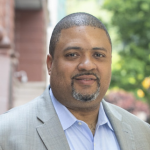What do you see as the greatest obstacle in the successful prosecution of rape and sexual assault cases?
 Tali Farhadian Weinstein
Tali Farhadian Weinstein
The crisis in gender-based violence reflects many failures: failure sometimes to understand the harm this violence causes; failure to listen to and respond to survivors’ voices; failure to fund fully and appreciate organizations that support and care for victims; failure to address systemic problems like poverty and racism that manifest in this kind of violence against the most vulnerable; failure to provide housing alternatives for those suffering abuse; and failure on the part of law enforcement to protect victims, hold abusers to account, and prevent further violence. Tragically, the most vulnerable often bear the brunt of these failures; Black trans women are assaulted at alarmingly high rates. Law enforcement cannot address the crisis alone, but we must do our part and do it well.
Increasing the capabilities and skill sets of my Bureau of Gender-Based Violence ADAs is a top priority. Prosecutors will have access to training that improves response to victims and advances the pursuit of justice and healing. This specialized education includes:
- Trauma-informed training for all ADAs to ensure that the reporting process does not inflict further harm on victims.
- Ongoing instruction in cognitive interviewing, aimed at improving witness interviews.
- Culture and gender-sensitivity training to improve attorney response to sexual assaults in the LGBTQ, Gender Nonconforming, Black, Latinx, Asian, and immigrant and non-citizen communities.
- Forensic Experiential Trauma Interview training.
- DV prosecutor training in the proper use of the Danger Assessment Tool.
- DV prosecutor training in methods to better recognize, investigate, and prosecute strangulation cases.
- Training in how to investigate and pursue prosecutions of stalking, cybercrime, non-consensual pornography, and digital harassment cases.
Read the Full Questionnaire
Tali Farhadian Weinstein Tahanie Aboushi
Tahanie Aboushi
Right now, the greatest obstacle is that most sexual assaults and rapes do not get reported. There are many reasons for this, but it cannot be ignored that many survivors do not turn to the criminal justice system because they do not trust it or have faith in the system. This has occurred because, as discussed above, insufficient training in working with survivors of trauma and in only “hearing” victims when they are telling prosecutors what they want to hear. I believe that as we establish our wide-ranging victim services program, the community will begin to trust us more and more and know that if they do come forward to report a sexual assault that everyone at the DANY will treat them with the utmost respect and dignity, and seek to help them in any way we can, separate from the results of a prosecution. As said above, if a case is not prosecuted for any reason, we will not turn our backs on victims, and if a case ends, we know the needs of victims do not, and will continue to provide support and services.
 Alvin Bragg
Alvin Bragg
We know that sexual assault is the most underreported violent crime in the country. Based on discussions with survivors, I have learned how corrosive the process in Manhattan can be when survivors come forward to share their experiences with law enforcement: they experience a process that focuses on “winning” a case, and not on the trauma experienced.
The law on these cases is imperfect but generally gives DAs the tools they need, and the current DA’s written policies and procedures on these cases are not ostensibly bad, yet there appears to be culture of treating these cases differently, requiring a higher level of proof than, for example, a “standard” street robbery case. Changing this culture, and an analogous culture at the NYPD, will require more than simply implementing new written policies and requiring new trainings, it will require a deep commitment of the entire executive staff to closely monitor the implementation of these new policies, maintain a continuous and open dialogue with advocates in this community, and send consistent and strong messaging both externally and internally that we take these cases seriously and are devoted to prosecuting the zealously.
My office will center the trauma of survivors and focus on the process itself. We will seek to bring prosecutions, but that will not be our exclusive focus. Our focus will be on an affirming process that is driven by survivors. We will hear from survivors in a way that does not require them needlessly to repeat what happened and experience their trauma over and over again for different law enforcement audiences. We will include the voices of survivors at every stage of the process, being transparent about the status of an investigation and consulting with survivors about next steps. We will invite questions and solicit views. We also will provide assistance with social service resources, where survivors want a restorative justice process, we will provide it. Of course, restorative justice should never be applied unless the participants choose it, but survivors should be given that choice.
Whether a restorative justice approach or a more traditional prosecution, my office will be driven and guided by survivors’ voices, and as noted above we will be guided not only by their choice in outcomes but also by the trauma-informed processes we will utilize throughout an investigation.
 Liz Crotty
Liz Crotty
I believe the greatest obstacle in sex crimes cases is gaining the trust of the victims, and assuring them that they will not be victimized a second time.
The trust cannot end at the prosecution stage. When people are finished with their criminal case, either as a victim or a defendant, they want to return to a life outside of the criminal justice system. For most parties who come before the system, especially victims, it is a series of traumatic events, and they do not want to stay in touch with those involved. The office needs to work on community trust so that victims feel comfortable cooperating in a criminal case. In partnering with advocacy groups, the office can build that trust.
 Diana Florence
Diana Florence
The Manhattan DA’s Office has effectively taken the ignorant and outdated position that only the perfect victim can receive justice. Frankly, Vance has completely destroyed the reputation of the office with sex crime victims and it won’t be easily restored. In this society we tacitly accept a certain level of violence against women, and as DA I promise to be an outspoken feminist. I am to date, the only candidate for DA to condemn State Senator Luis Sepulveda who turned himself into the police for strangling his wife. I am also the only candidate to have called for a criminal investigation of Governor Cuomo’s sexual misconduct. Based on my experience prosecuting domestic violence, I understand that strangulation is an escalation of existing violence and a precursor to worse. Tearing down barriers to reporting gender based violence also means seeing the DA call it out. Beyond the public facing role of reputational repair, I want to work with survivor advocates to address the process. That could look like an advisory committee which makes suggestions we actually act on. Bringing in experts to act as on site advocates for survivors in addition to counselors. And setting up a clear, and transparent process for the victim to 1) understand their rights 2) the legal issues at play 3) and our shared goals. The most important thing is for victims to know that the DA is on their side. I want to work with survivors and relevant stakeholders to make sure we have direct input on what exactly that means.

Lucy Lang
The greatest obstacle is a system and public that lacks education about the impacts of trauma. Educating prosecutors and police about how to take a trauma-informed survivor-centered approach is just the beginning. We also need to make sure judges and juries have a robust understanding of the impacts assault and rape can have on a survivor, and to review evidence through that understanding. The system also must stop using the excuse of the difficulty of a case as a rationale for doing nothing.

Dan Quart
Every survivor of sexual assault or abuse deserves justice. Yet our current Manhattan District Attorney has let powerful and wealthy (and white) abusers off the hook for years, like Harvey Weinstein, Jeffrey Epstein, and Dominique Strauss-Kahn. The current office has enabled and enforced a two-tiered justice system that protects the rich from accountability and doesn’t protect the rest of us from anything. This is one of the largest obstacles to prosecution and what I would work to dismantle as District Attorney.